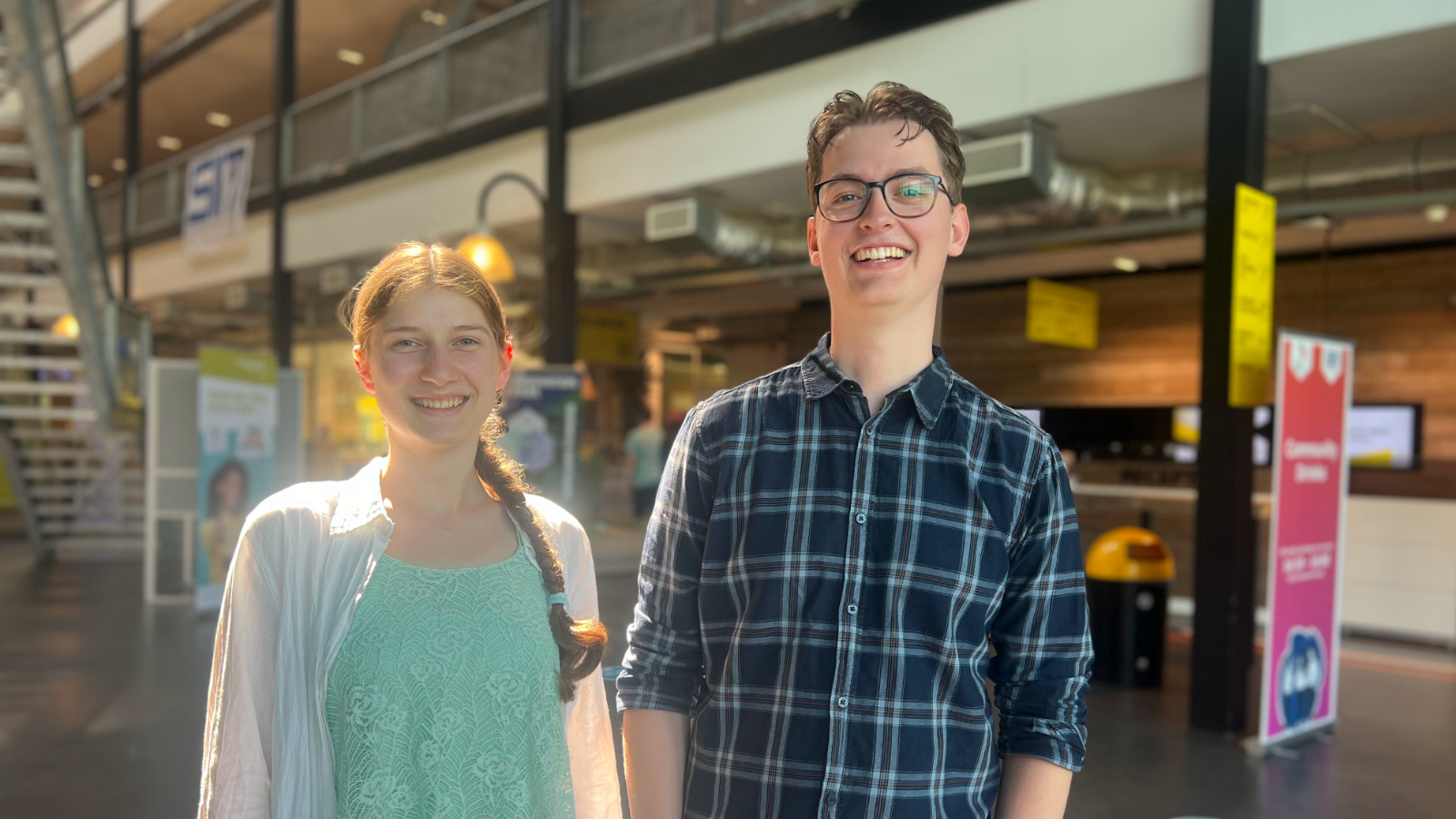HBO Monitor 2022: University of applied sciences students find a steady job quickly
19 June 2023
It is of course very exciting: choosing the right advanced education after secondary school. How can you be sure which study programme will suit you?

Getting started after the Innovative Development study programme
It is of course very exciting: choosing the right advanced education after secondary school. How can you be sure which study programme will suit you? And can you find a nice job soon after having spent all those hours studying? According to the Higher Professional Education (HBO) Monitor 2022, you will. But does this also apply to the Innovative Development differentiation of the HBO ICT study programme? We talked about it with first-year student Amber Koens and with Joris van den Burgh, who graduated in 2022 and now works as a developer at TimeEdit.
A good balance
Amber made the switch from secondary school to the HBO ICT study programme at The Hague University of Applied Sciences in 2022. ‘I wanted to study ICT regardless. Gaming also seemed interesting, but you need more knowledge on programming for that. In the end, I chose the Innovative Development (ID) differentiation, because it has a good balance between programming and management.’
Socially relevant projects
This was also the reason for Joris to choose ID at the time. ‘I have always been interested in ICT and how things work. I like working on projects to create good things together. An advantage with The Hague University of Applied Sciences is also the social relevance of the projects. You develop something that is beneficial to others and that gives you a good feeling. In my line of work, I am involved in the development of the front-end and back-end of applications and make sure they are easy and intuitive for people to use.’
Close to the work field
Joris was part of first batch of students to study ID differentiation. ‘I started with the basic semester and an Information and Security Management (ISM) semester, but it only really got to be fun when ID started as a pilot and I switched. That study programme was it for me and I look back on a great time with the other students and the lecturers. I learned many things that are still useful every day, such as programming, working with databases and scrum. By developing your skills to become a generalist, it is easier to get employed. The study programme prepared me well for the work I do now.’
Well prepared for practice
Amber: ‘This study programme fits well with my expectations. Because we have to do a lot of documentation, research and consultation, it often takes a long time before we can start programming. Because of this, I sometimes find it difficult to get credits and at the same time achieve the best possible results.’ Joris recognises this struggle. ‘I also want to make the apps I develop as good as possible, but usually it's a matter of delivering the software working, within the set time. So in that respect, the ID course is definitely realistic.’
Coming full circle
And speaking of realistic: one of the applications Joris developed during his internship at TimeEdit is now being used by The Hague University of Applied Sciences, among others. ‘In doing so, I still have good contact with the ID study programme. I was able to co-develop the app we envisaged in the first years of the course to work out learning objectives and learning lines. Great, right?’
Good job prospects
According to the HBO Monitor 2022, 87% of university of applied sciences student graduates find a job right away. So this also applies to Joris, who was able to join TimeEdit immediately after graduating. Is finding a job so quickly also the reason he chose this study? ‘No, I just thought it was a great study programme. I see the fact that you can find a job quickly as a bonus. And because I went to work for an organisation I already knew, the transition wasn’t big.’
Chosen mainly because of the content
For Amber, too, the job opportunity was not the main argument to choose the ID differentiation. ‘Above all, your studies have to be interesting and challenging in terms of content. ID perfectly matches my interests. But it is a complicated study programme and you are expected to study independently a lot, and you have to take responsibility and initiative. If you choose ID only because of the job opportunities, but are not really motivated, I don't think you will make it.’
Getting to work
Amber: ‘Whether I'm going to work straight after having completed the study programme, I don't know yet. I still want to develop games and might first take a course in that direction. For example, the minor Game Development at The Hague University of Applied Sciences. After that, I want to start working. Working for myself seems very difficult in this industry, so I would prefer to work for a larger, social company. That will certainly be possible after this study.’
Tips for studying
Finally, Joris gives Amber a tip from his own studies: ‘Don’t be afraid to be vulnerable while studying. That's when you learn the most. Self-confidence is good, but it is often better to ask questions and ask others for help. Together you get further.’